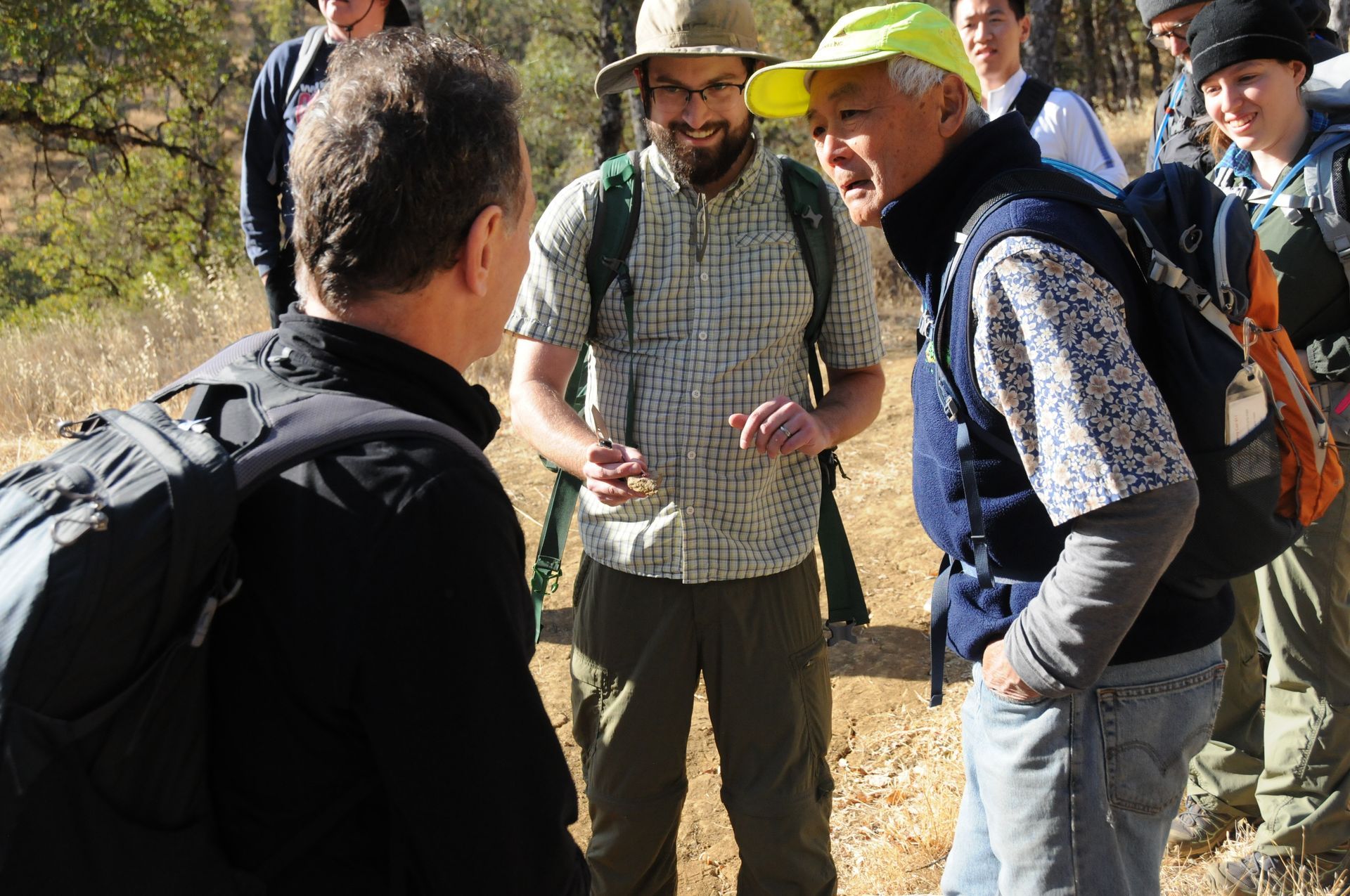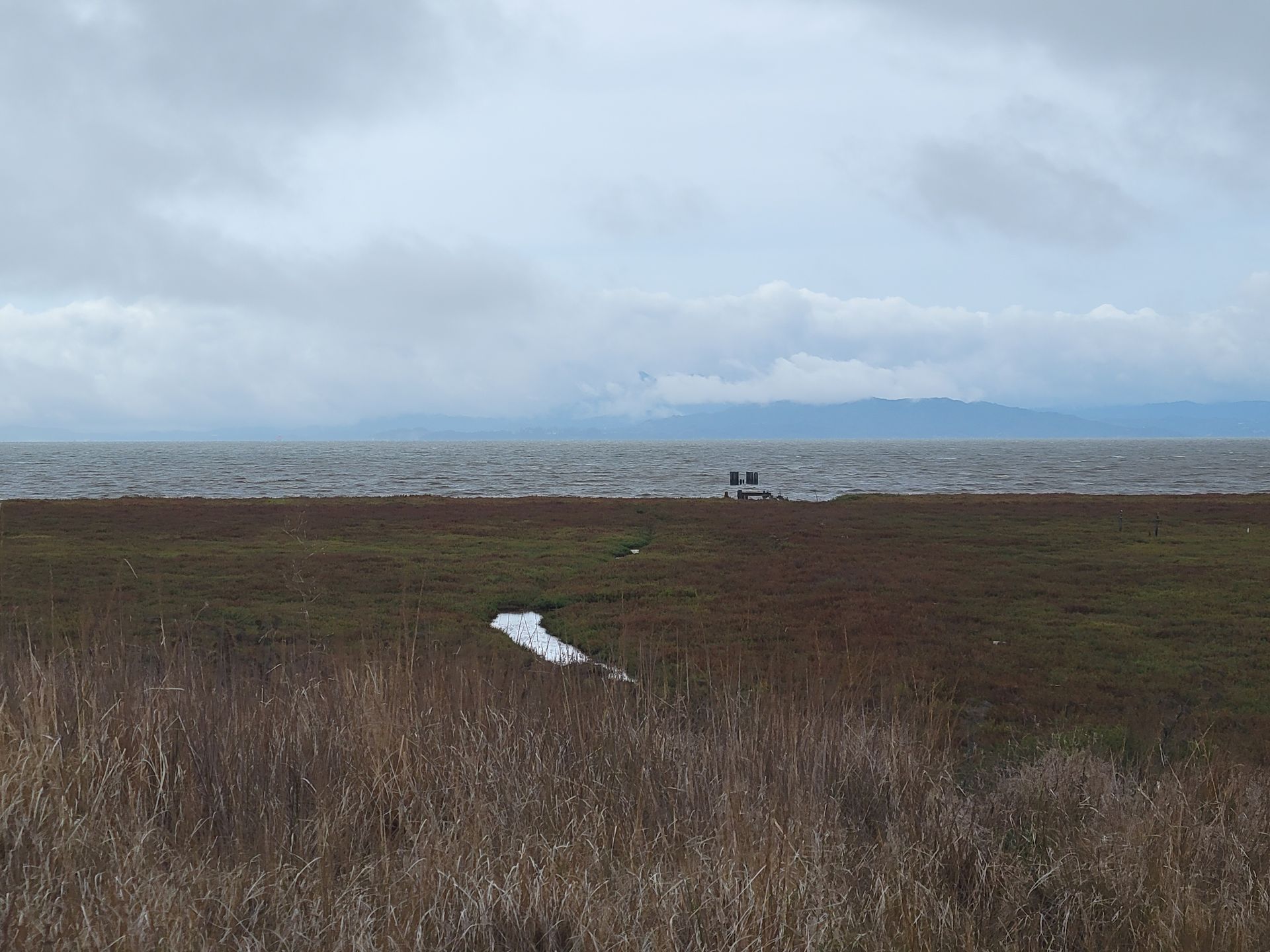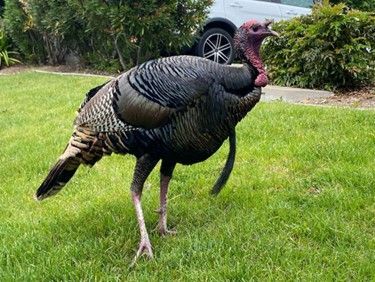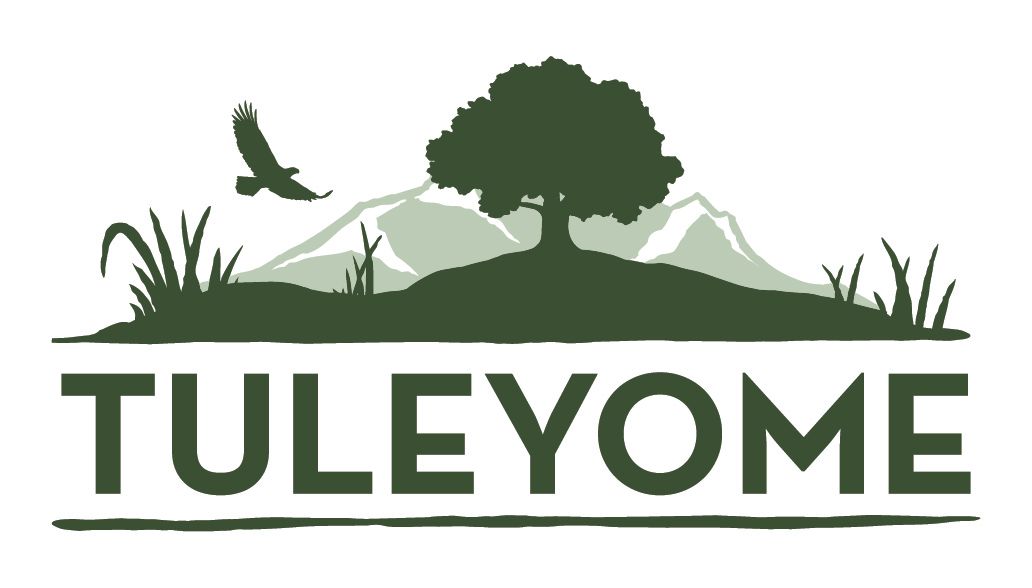By Kristie Ehrhardt
•
December 3, 2025
Urban legend has it that our national symbol was nearly the Wild Turkey. Ben Franklin called them a “bird of courage” and it’s been said that he suggested that the Bald Eagle be replaced with a Wild Turkey. I’m not sure if that is true but I will say that after having a confrontation with the turkey brigade, they are not to be messed with. There are only two species of Wild Turkey world wide; the one we’re familiar with here in North America (Meleagris gallopavo) and the Ocellated Turkey (M. ocellata) found in Central America. For different reasons, the Wild Turkey is probably one of the most recognizable birds in the United States. Although I think they look best foraging under oak trees, some think they look even better on a platter surrounded by all the Thanksgiving accoutrements. Wild Turkeys are upland game birds and belong to the family Galliformes. The domesticated white turkey is a relative of our pretty Wild Turkey. Adult males have featherless red heads, long reddish-yellow legs with three toes facing forward and one rear-facing toe just below a nasty spur that they use to fight other males with. Their body feathers are generally dark brown and black with a stunning coppery sheen and a fan shaped tail. His iridescent feathers have areas of bronze, copper, green, gold, purple and red. Females on the other hand are about half the size of males and in following female upland game bird dress code, are mainly drab brown to camouflage while sitting on the nest. Ironically, this hefty brute that tries to intimate shoppers in the grocery store parking lot or corner toddlers in the neighborhood park was nearly extinct by the 20th century. By the early 1900’s only about 200,000 individuals were left roaming the country-sides of the United States due to habitat loss and over-hunting. Thanks to conservation efforts and responsible hunting practices, today their population is estimated at 6.5 billion wild birds in the United States. While several states have “turkey-rich refuges” here in California it seems that the birds have badgered their way into many of our urban and suburban areas. Wild Turkeys have funny appendages with funny names. The wattle is the skin flap that hangs from the beak to the neck and the snood is the piece of flesh that dangles from the beak. Can you guess what a caruncle is? Naturally, they’re the little bumps of flesh that cover the bird’s necks and heads. And of course we can’t forget about their beards - those are the bundle of stiff feathers that grow from their chests. All males have them and so do a few females but theirs is not nearly as glorious as the males’. The beard gets longer as the bird ages and biologists still don’t know what the purpose they serve. Very young turkeys are called poults and eat insects like they were gummy bears. As they age they develop a more refined and mature pallet and begin to incorporate some vegetation. Adult turkeys eat acorns, nuts, seeds, berries, insects and even small reptiles and amphibians. Young males are called jakes and adult males are called Toms while female turkeys are called hens. Wild Turkeys are highly adaptable and in California they can be found occupying a wide range of habitat types from oak woodlands, to mixed conifer forests, valley riparian, high deserts and even suburban parks and parking lots. You may find them pecking at their reflections in glass office complex doors, strutting around the post office parking lot or sitting on the hood of your car in the driveway. Fun Wild Turkey Facts! Wild Turkeys are much more agile than they appear. They have been clocked at 18 miles per hour on foot and can fly 50 to 60 miles per hour! Wild Turkeys have excellent vision and can see three times better than our perfect 20/20! They can change the color of their heads based on their mood! Although they’ve been called “courageous”, these softies sleep together in trees for safety. Males and female turkeys can be distinguished based on the size and shape of their droppings. Who knew? On average, adult Wild Turkeys have between five and six thousand feathers! When you’re walking off your Thanksgiving meal, keep an eye out for these beauties. Their habitat includes more than just your dinner table! -Kristie Ehrhardt ( kehrhardt@tuleyome.org ) Tuleyome Land Conservation Program Manager







